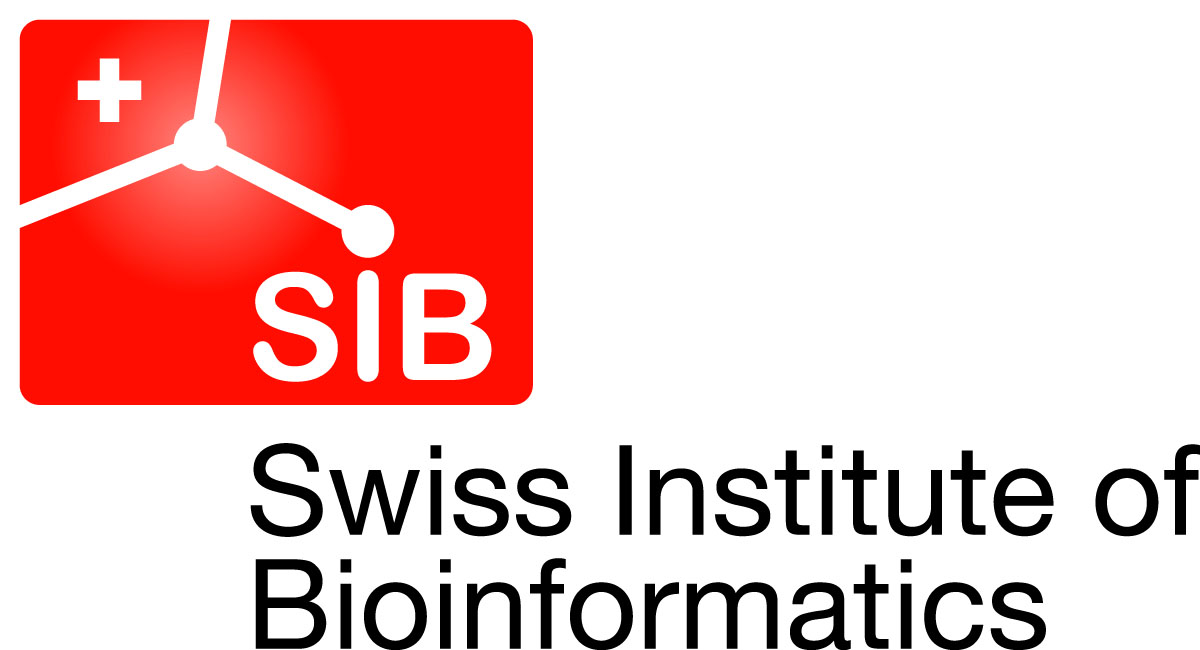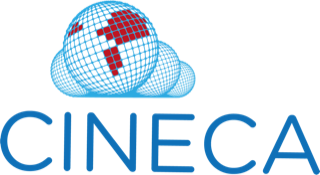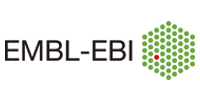Search results
-
e-learning
Use V-pipe to evaluate SARS-CoV-2 sequence variability
 • beginnerVirology Sequence analysis SARS-CoV-2 Variant calling
• beginnerVirology Sequence analysis SARS-CoV-2 Variant calling -
Computer Software, workflow
How to use V-pipe (SARS-CoV-2 data)
 • beginnerVirology Genetic variation Workflows Variant calling Alignment Read pre-processing coronavirus NGS bioinformatics Variant-calling
• beginnerVirology Genetic variation Workflows Variant calling Alignment Read pre-processing coronavirus NGS bioinformatics Variant-calling -
e-learning
MGnify v5.0 Amplicon Pipeline
 • beginnerMetagenomics Microbial ecology Taxonomy Sequence analysis Microbiome amplicon microbiome taxonomic abundance taxonomy
• beginnerMetagenomics Microbial ecology Taxonomy Sequence analysis Microbiome amplicon microbiome taxonomic abundance taxonomy -
Video
A common framework for designing portable federated pipelines
 •• intermediateData architecture, analysis and design data access federated data analysis
•• intermediateData architecture, analysis and design data access federated data analysis -
FREE online course
Making sense of genomic data: COVID-19 web-based bioinformatics
 • beginnerbioinformatics NGS bioinformatics Next generation sequencing data analysis covid-19 sars-cov-2 coronavirus data-analysis data visualization genomics Genomic data …
• beginnerbioinformatics NGS bioinformatics Next generation sequencing data analysis covid-19 sars-cov-2 coronavirus data-analysis data visualization genomics Genomic data … -
sateeshperi/nextflow_varcal
Workflows Variant pattern analysis Nextflow Variant analysis
-
Recorded webinar
Deploying Nextflow pipelines in the cloud: a practical introduction
Workflows
-
rworkflow/RcwlWorkshop
CWL Workflows Variant pattern analysis R Variant analysis
-
Reproducible and Scalable Research with Snakemake and Software Containers
 • beginner
• beginner -
Recorded webinar
Computer-assisted functional precision medicine in cancer
Simulation experiment Computational biology Personalised medicine
-
Recorded webinar
Introducing PerMedCoE Building Blocks and Workflows to streamline biological analysis pipelines
Computational biology Personalised medicine Workflows
-
e-learning
Using the VGP workflows to assemble a vertebrate genome with HiFi and Hi-C data
 •• intermediateSequence assembly Chromosome conformation capture Assembly VGP biodiversity eukaryote pacbio
•• intermediateSequence assembly Chromosome conformation capture Assembly VGP biodiversity eukaryote pacbio -
Webinar
Text mining: Key concepts and applications
Literature search Text mining Europe PMC Biomedical Literature
-
WEBINAR: Getting started with whole genome mapping and variant calling on the command line
Genome mapping Variant calling Bioinformatics Workflows
-
digo4/Clinical-Genomics
Genomics Sequencing Variant pattern analysis Next generation sequencing Variant analysis
-
rnnh/bioinfo-notebook
General
-
burkesquires/python_biologist
Workflows Data visualisation Machine learning Snakemake Reproducibility Data visualization Python
-
Tutorial
Variant Analysis - Exome sequencing data analysis

-
Analysing Mapped Sequence Data with SeqMonk
 • beginnerSequence alignment Babraham Institute
• beginnerSequence alignment Babraham Institute -
e-learning
Beyond the numbers: The human side of data
Database management Biobank Ethics ELSI
-
course materials, Online material, Training materials
Cloud-SPAN Genomics
• beginnerBioinformatics Software engineering Genomics DNA polymorphism Workflows Data architecture, analysis and design Shell Command line Cloud computing HPC … -
Presentation, course materials
Introduction to Nextflow workshop
 • beginnerWorkflows Nextflow DSL2
• beginnerWorkflows Nextflow DSL2 -
e-learning
Advanced CLI in Galaxy
 •• intermediateSoftware engineering Foundations of Data Science bash jupyter-notebook
•• intermediateSoftware engineering Foundations of Data Science bash jupyter-notebook -
slides
Mapping
 • beginnerSequence analysis
• beginnerSequence analysis -
e-learning
Building an amplicon sequence variant (ASV) table from 16S data using DADA2
 • beginnerMetagenomics Microbial ecology Taxonomy Sequence analysis Metabarcoding 16S Microbiome metabarcoding microgalaxy
• beginnerMetagenomics Microbial ecology Taxonomy Sequence analysis Metabarcoding 16S Microbiome metabarcoding microgalaxy -
Recorded webinar
eQTL Catalogue: a compendium of uniformly processed human expression and splicing QTLs
GWAS study Genetic variation
-
WEBINAR: Variant interpretation: from the clinic to the lab… and back again
Clinical genomics Variant interpretation Variant curation Continuing Professional Development Professional Development Bioinformatics Genomics Variant calling
-
Recorded webinar
Visualising integrated single cell and spatial transcriptomics datasets
Transcriptomics Imaging Omics
-
e-learning
End-to-End Tissue Microarray Image Analysis with Galaxy-ME
 •• intermediateImaging Image segmentation Tissue imaging
•• intermediateImaging Image segmentation Tissue imaging -
oscarbaruffa/BigBookofR
Workflows Data visualisation Machine learning Statistics and probability Data visualization R Version control Data science Statistics
-

Workflow4metabolomics
In the context of collaboration between metabolomics (MetaboHUB French infrastructure) and bioinformatics platforms (IFB: Institut Français de Bioinformatique), we have developed full LC/MS, FIA-MS, GC/MS and NMR pipelines using Galaxy framework for data analysis including preprocessing,...
Workflow4metabolomics https://workflow4metabolomics.org https://tess.elixir-europe.org/content_providers/workflow4metaolomics In the context of collaboration between metabolomics (MetaboHUB French infrastructure) and bioinformatics platforms (IFB: Institut Français de Bioinformatique), we have developed full LC/MS, FIA-MS, GC/MS and NMR pipelines using Galaxy framework for data analysis including preprocessing, normalization, quality control, statistical analysis (Univariate, Multivariate PLS/OPLS) and annotation steps. Those modular and extensible workflows are composed with existing components (XCMS and CAMERA packages, etc.) but also a whole suite of complementary homemade tools. This implementation is accessible through a web interface, which guarantees the parameters completeness. The advanced features of Galaxy have made possible the integration of components from different sources and of different types. Thus, an extensible Virtual Research Environment (VRE) is offered to metabolomics communities (platforms, end users, etc.), and enables preconfigured workflows sharing for new users, but also experts in the field. /system/content_providers/images/000/000/659/original/17082156.png?1667905557 -

Danish National Health Data Science Sandbox
The Health Data Science Sandbox is a national project coordinated by the Center for Health Data Science at the University of Copenhagen. Advisors and project data scientists are located at five Danish universities. We are building a data science sandbox for students and...
5 training materialsDanish National Health Data Science Sandbox https://hds-sandbox.github.io https://tess.elixir-europe.org/content_providers/danish-national-health-data-science-sandbox The Health Data Science Sandbox is a national project coordinated by the [Center for Health Data Science](https://heads.ku.dk/) at the University of Copenhagen. Advisors and project data scientists are located at five Danish universities. We are building a data science sandbox for students and researchers that contains non-person-sensitive datasets spanning key health data domains – electronic health records, omics data such as genomics and transcriptomics, images, and wearable device data. Datasets are sourced from public databases or generated via privacy-preserving approaches to synthetic health data. We are building modules that pair topical datasets with recommended analysis tools, pipelines, and learning materials/tutorials in a portable, containerized format. Our initial aim is to support university courses and programs in health data science and personal medicine, with broader environment access for researchers and university students planned in the future. Our sandbox for exploring health data science techniques will allow low-stakes guided learning and development followed by a smooth transition to a secure environment where users’ knowledge and tools can be applied to sensitive data. The sandbox environment is hosted on Danish supercomputers providing compute power while modules are publicly accessible on [GitHub](https://github.com/hds-sandbox). We thank the Novo Nordisk Foundation for funding support via the Data Science Research Infrastructure initiative. /system/content_providers/images/000/000/669/original/logo.png?1678825482